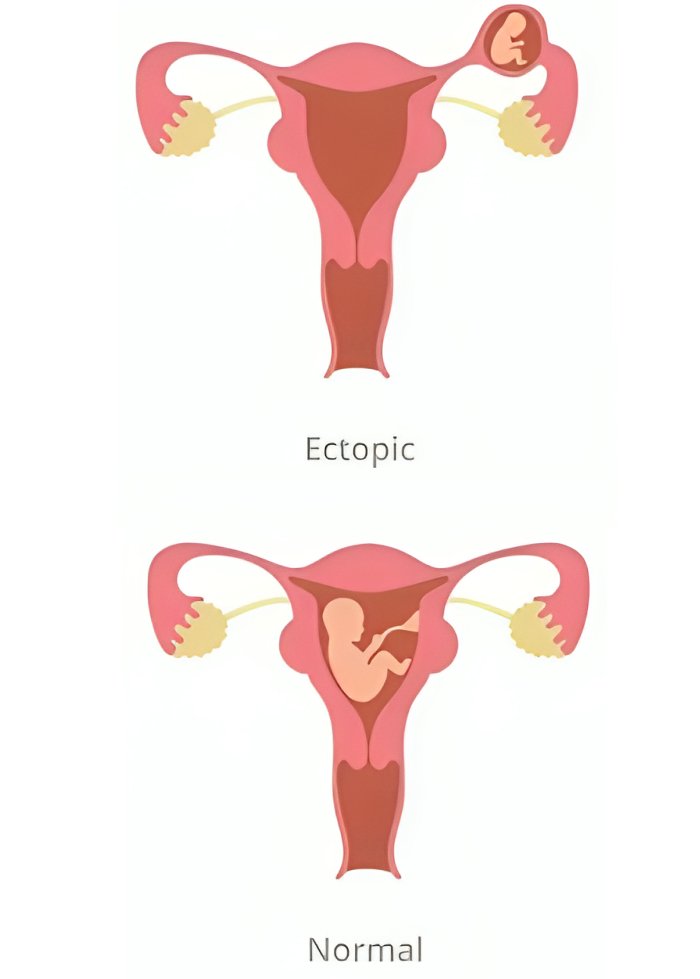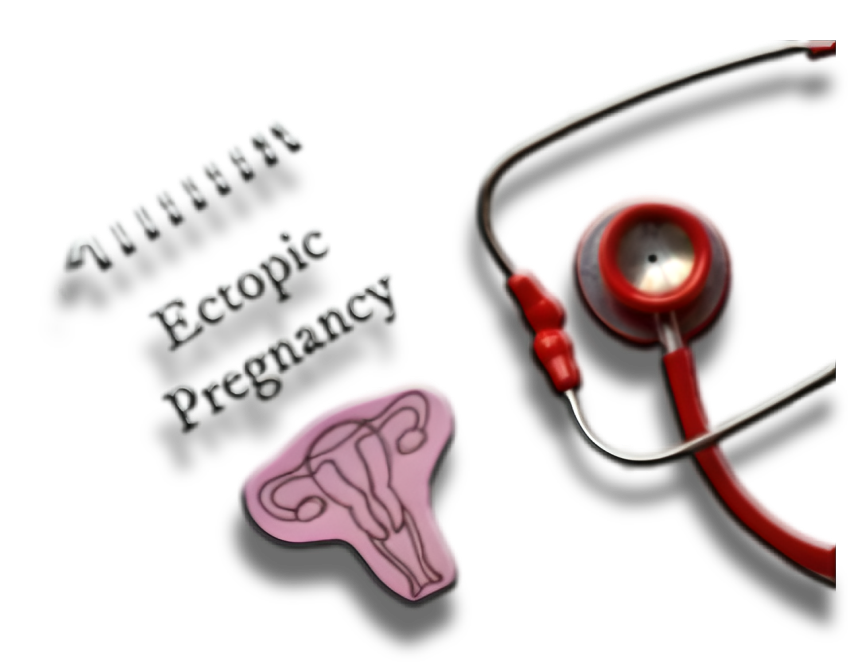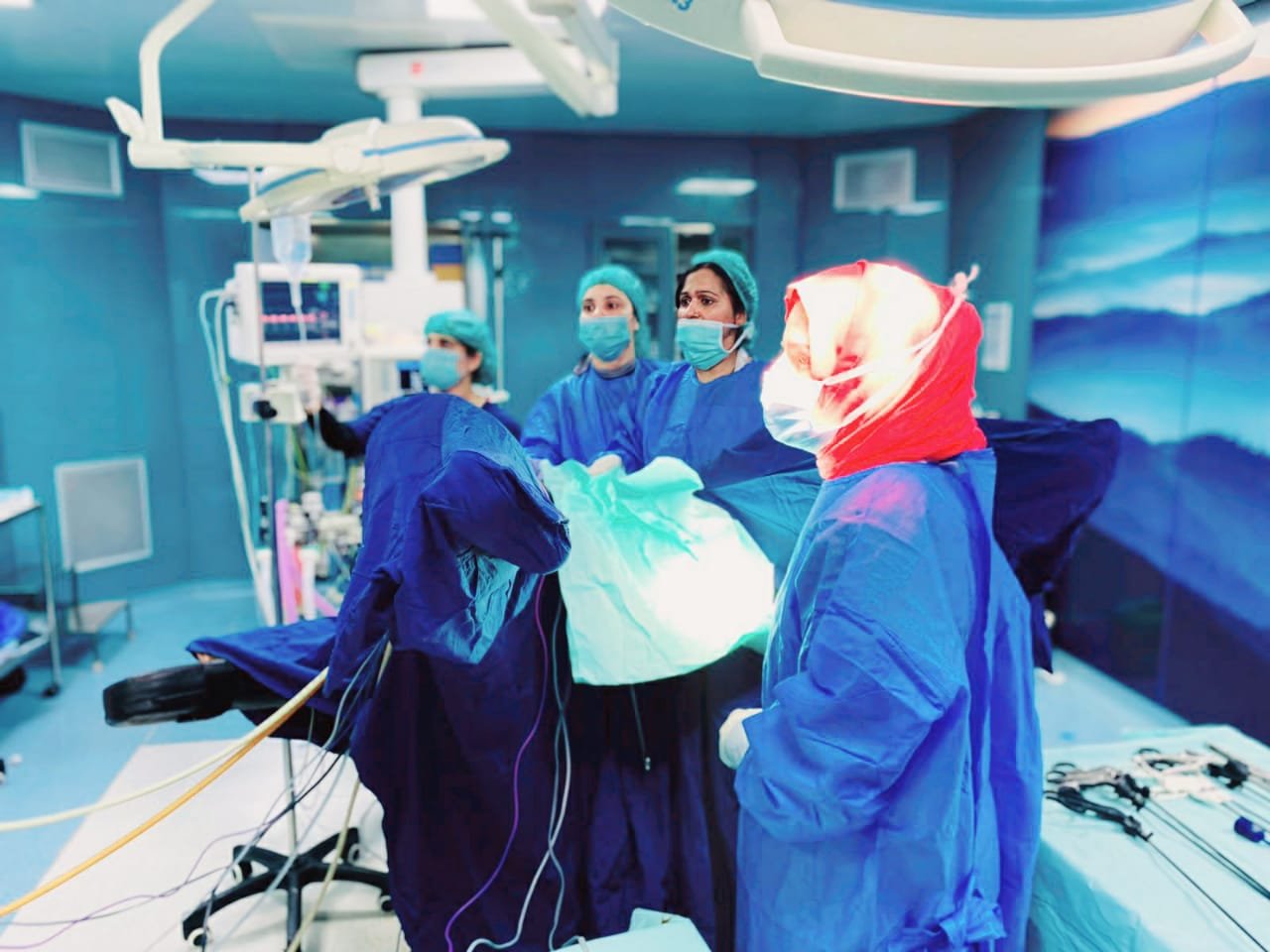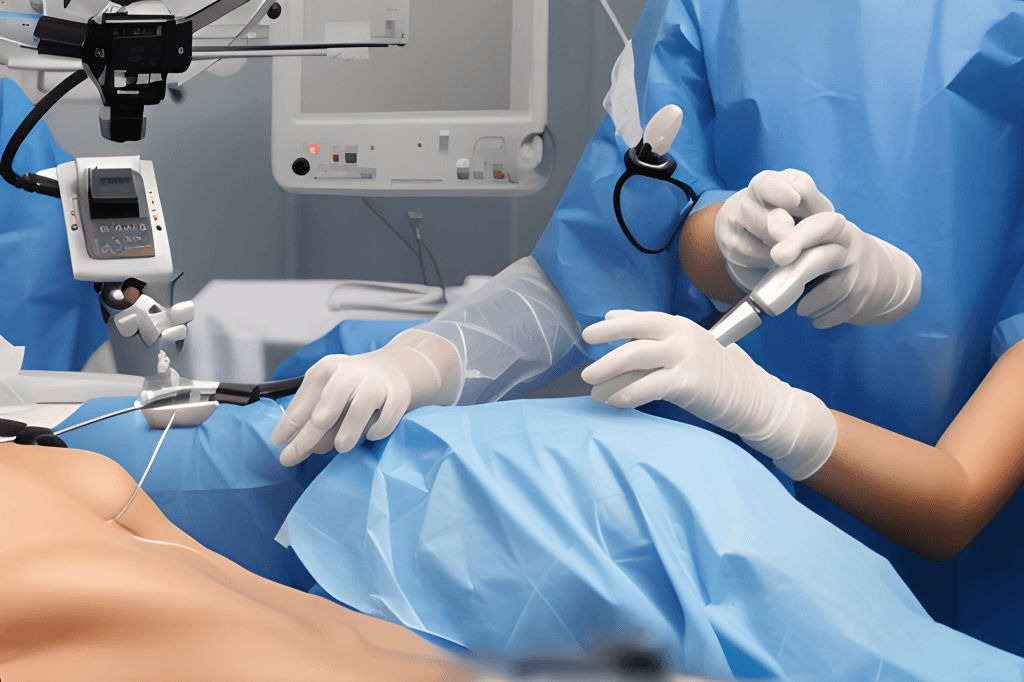Ectopic Pregnancy Treatment
Home > Gynae Treatments > Ectopic Pregnancy Treatment

An ectopic pregnancy, also known as a tubal pregnancy, is a potentially serious medical condition. In ectopic pregnancy a fertilized egg implants and grows outside the uterus typically within one of the fallopian tubes. In a normal pregnancy, the fertilized egg travels through the fallopian tube into the uterus, where it implants and grows. However, in an ectopic pregnancy, the egg does not reach the uterus and instead implants and begins to develop in the fallopian tube, ovary, abdominal cavity, or cervix.
These locations cannot support the growth of a developing embryo. An ectopic pregnancy is not viable and poses significant health risks to the pregnant woman. As the embryo grows, it can cause the affected tube or organ to rupture, leading to internal bleeding and it can become a life threatening emergency.
Ectopic pregnancies occur in about 1 in 50 pregnancies and can cause symptoms such as pelvic pain, vaginal bleeding, dizziness, and shoulder pain. Early detection and prompt medical intervention are crucial to prevent complications and safeguard the woman's health.
We are proud to have the best gynecologists specializing in the treatment and removal of ectopic pregnancies. In leadership of Prof Dr Rehana Aamer Khan our highly skilled and experienced team of gynecologists is dedicated to providing compassionate and personalized care to women facing this challenging condition in lahore. With their expertise in the latest surgical techniques, including laparoscopy and robotic surgery (minimal Invasive surgery) in Lahore, they ensure precise and safe removal of ectopic pregnancies, prioritizing the well-being and health of our patients.
The symptoms of an ectopic pregnancy can vary, and some women may not experience any noticeable symptoms initially. However, as the pregnancy grows, certain symptoms may develop, indicating the possibility of an ectopic pregnancy. It is essential to be aware of these symptoms and seek medical advice immediately if it occurs.
Common symptoms of an ectopic pregnancy include:
It is important to note that these symptoms can also be associated with other conditions, and not all women with an ectopic pregnancy will experience all of these symptoms. Additionally, some women may only have mild symptoms initially, while others may have severe pain and symptoms of shock due to internal bleeding.
If a woman suspects she may have an ectopic pregnancy or experiences any of these symptoms, she should seek immediate medical attention. Early detection and prompt treatment are crucial to prevent complications and protect the woman's health
If an ectopic pregnancy ruptures then it’s a medical emergency situation.

The primary cause of an ectopic pregnancy is a fertilized egg implanting and growing outside the uterus, typically in one of the fallopian tubes. This occurs when the normal pathway of the fertilized egg from the ovary to the uterus is obstructed or impaired.
Common factors that leads to the development of an ectopic pregnancy are,
It is important to note that in most cases, the specific cause of an ectopic pregnancy may not be identifiable. Early diagnosis and prompt treatment are vital to manage ectopic pregnancies and prevent complications, as this condition can be life-threatening if left untreated.
Diagnosing an ectopic pregnancy involves a combination of medical history assessment, physical examination, and various diagnostic tests. Early detection is crucial to avoid potential complications, as ectopic pregnancies can be life-threatening.
Here is an overview for how to diagnose ectopic pregnancy
Medical History and Physical Examination: The doctor will take medical history of the patient, including any symptoms experienced and the timing of their menstrual cycle. Doctor will perform a pelvic examination to check for signs of tenderness or abnormal masses in the pelvic region.
Pregnancy Test: A urine or blood pregnancy test is usually the first step in diagnosing an ectopic pregnancy. A positive pregnancy test indicates the possibility of pregnancy, but it does not confirm the location of the pregnancy.
Transvaginal Ultrasound: Transvaginal ultrasound is a key diagnostic tool for ectopic pregnancy. It helps the doctor visualize the uterus, fallopian tubes, and ovaries, and can identify the presence and location of the pregnancy.

Serial Beta-hCG Blood Tests: Serial beta-human chorionic gonadotropin (hCG) blood tests are performed to monitor the levels of this hormone, which increases during early pregnancy. In a normal pregnancy, hCG levels double every 48 to 72 hours. Slower-than-expected rising hCG levels may raise suspicion of an ectopic pregnancy.
The combination of these diagnostic tests allows the doctor to identify the presence of an ectopic pregnancy and its location. If an ectopic pregnancy is confirmed, prompt medical intervention is crucial to prevent complications such as rupture and internal bleeding. Treatment options may include medication to dissolve the pregnancy tissue or surgery to remove the ectopic pregnancy, depending on the patient's condition and overall health.
The treatment of an ectopic pregnancy aims to remove the pregnancy tissue from the fallopian tube or other affected location. The choice of treatment depends on various factors, including the size and location of the ectopic pregnancy, woman's overall health and the presence of any symptoms. The main treatment options for ectopic pregnancy are:
Medication: If the ectopic pregnancy is detected early, is small in size, and has not caused significant damage, the doctor may recommend a medication. Medicines are given as an injection and works by stopping the growth of the pregnancy tissue, causing it to be absorbed by the body over time. Regular monitoring with blood tests is essential to ensure the treatment is effective and to watch for any side effects.
Laparoscopic Surgery: If the ectopic pregnancy has grown larger, is causing severe symptoms, or has already ruptured, laparoscopic surgery (laparoscopy) may be necessary. During this minimally invasive procedure, the surgeon removes the ectopic pregnancy through small incisions in the abdomen. In some cases, if the fallopian tube is severely damaged, it may also need to be removed.
Robotic Surgery: Removal of an ectopic pregnancy through robotic surgery is an advanced and minimally invasive surgery approach. This cutting edge technique utilizes robotic-assisted technology, where a surgeon controls robotic arms with high precision and flexibility. The robotic system offers enhanced visualization and dexterity, allowing for precise removal of the ectopic pregnancy through small incisions in the abdomen. Robotic surgery reduces postoperative pain, minimizes scarring, and promotes a faster recovery compared to traditional open surgery. This innovative method is particularly beneficial for cases where the ectopic pregnancy is challenging to access, enabling safer and more effective treatment.
Laparotomy: In rare cases, if the ectopic pregnancy is large or the woman's condition is unstable, open abdominal surgery (laparotomy) may be required. This involves making a larger incision in the abdomen to access and remove the ectopic pregnancy but it is not very popular and recommended after the advancement of Laparoscopic and Robotic surgery
After treatment, follow-up visits are essential to monitor the woman's recovery and ensure that hCG levels return to normal. Depending on the specific circumstances, the doctor may recommend delaying conception for a period of time to allow the body to heal. If the fallopian tube is preserved and the woman desires future pregnancies, she may be advised to wait for a few months before trying to conceive again.

In Lahore we have best team of minimal invasive surgeons specialized in treating ectopic pregnancies. With a wealth of experience and expertise, our skilled surgeons utilize cutting-edge techniques such as laparoscopic and robotic surgery to safely and effectively manage ectopic pregnancies. Our patient centric approach ensures individualized care, emphasizing compassion and support throughout the treatment. Be assured that our top notch minimal invasive surgeons are dedicated to providing the highest quality of care and optimal outcomes for women facing ectopic pregnancies, making us the best choice for expert and compassionate treatment of ectopic pregnancy in Lahore.
Contact UsCopyright @ . Design By Blizin Technologies